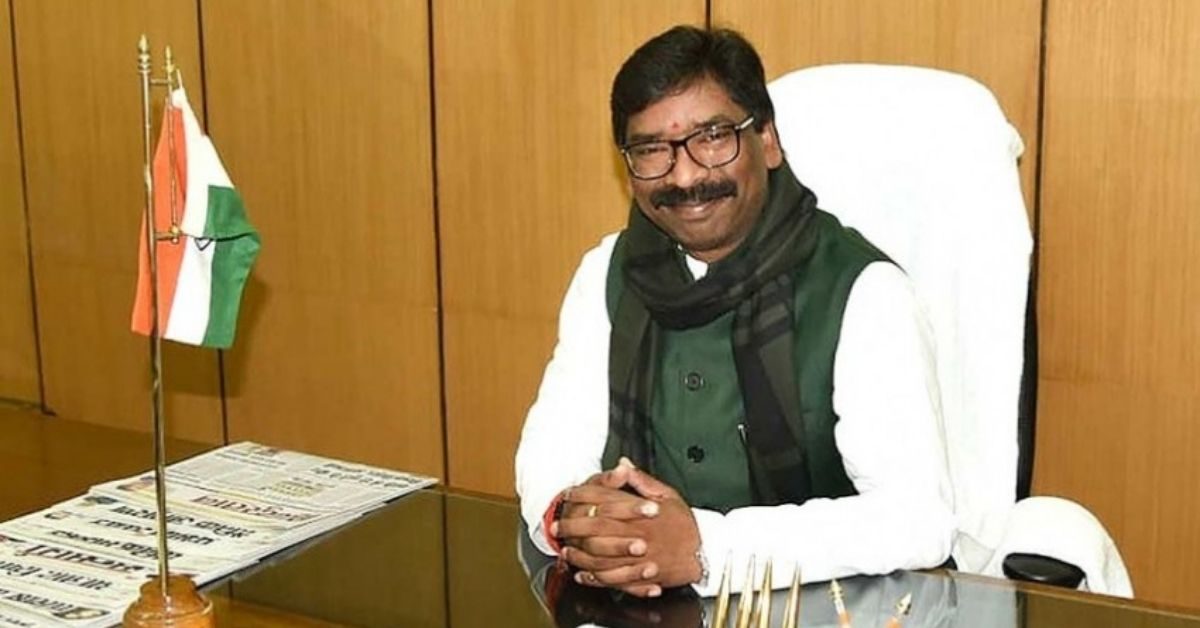Clean fuel, whether for power generation or for vehicles, is part of Jharkhand’s vision for emerging as an important industrial hub in the eastern region. Addressing investors at a two-day meet in Delhi, Jharkhand Chief Minister Hemant Soren on Saturday shared that the state will soon come out with new sector specific policies to attract investment and emerge as a key hub for manufacture of electric vehicles and ethanol production. Also on plans are attractive incentives to promote solar energy plants.
Soren told potential investors, including those already having a major presence in the state, that plans are afoot for setting up a floating solar power plant. In June, the state cabinet had given its nod for commissioning a 100-MW floating solar panel grid in the Getalsud Dam on the outskirts of Ranchi. Some of the new project proposals received by the state, including from Dalmia Bharat Group, include plans for setting up solar power plants.
On Friday, the chief minister during his meeting with major electric vehicle manufacturers including Tata Group, Maruti Suzuki, Honda, Hyundai Motors, Mahindra among others had shared the draft policies – on electric vehicle manufacturing, automobile and component manufacturing and ethanol production promotion – to get feedback before they are finalized.
The draft Electric Vehicle Policy 2021 envisages making Jharkhand a preferred manufacturing hub in eastern India and targets 10 per cent of the new vehicle registrations in the state by 2026 to be EVs besides conversion of 15 per cent of the state public transport vehicles to electric.
While presenting the new Jharkhand Industrial and Investment Promotion Policy 2021 on Saturday, the state officials had highlighted that an automobile hub is proposed near the new electronic manufacturing hub set up at Adityapur.
In the case of green fuel, the draft Ethanol Production and Promotion Policy (JEPP) 2021 sees huge potential for commissioning biofuel manufacturing units in the state “as the estimate is that over the next three years the demand for ethanol in Bihar, Jharkhand, Odisha and West Bengal combined will need about 100 crore litres of ethanol annually”, Jharkhand Industries Secretary Pooja Singhal told Outlook.
Ethanol is blended in petrol and diesel to reduce carbon emissions, which in turn lowers air pollution. Ethanol is distilled from sugarcane, molasses, and starch of rice, maze and agro-waste. While Jharkhand does not have large cultivation of sugarcane, it is looking at entrepreneurs primarily procuring their raw material from Bihar, Uttar Pradesh, Andhra Pradesh and other states.
The state has been receiving many proposals for setting up ethanol and alcohol plants. The first ethanol plant is expected to come up in the state by January next year. The state envisages being able to produce around 600 KL/day of ethanol using mainly maize, which is expected to benefit farmers. On the table before the government is a proposal to produce ethanol using broken rice stocks.
The draft policy envisages increased use of grains for production of ethanol through backward and forward linkages between farmers and industries through state food corporation and Food Corporation of India. The draft policy stresses that the selection of feedstock for making ethanol will be as “permitted under National Policy on Biofuels, 2018”.
Source : Out Look








